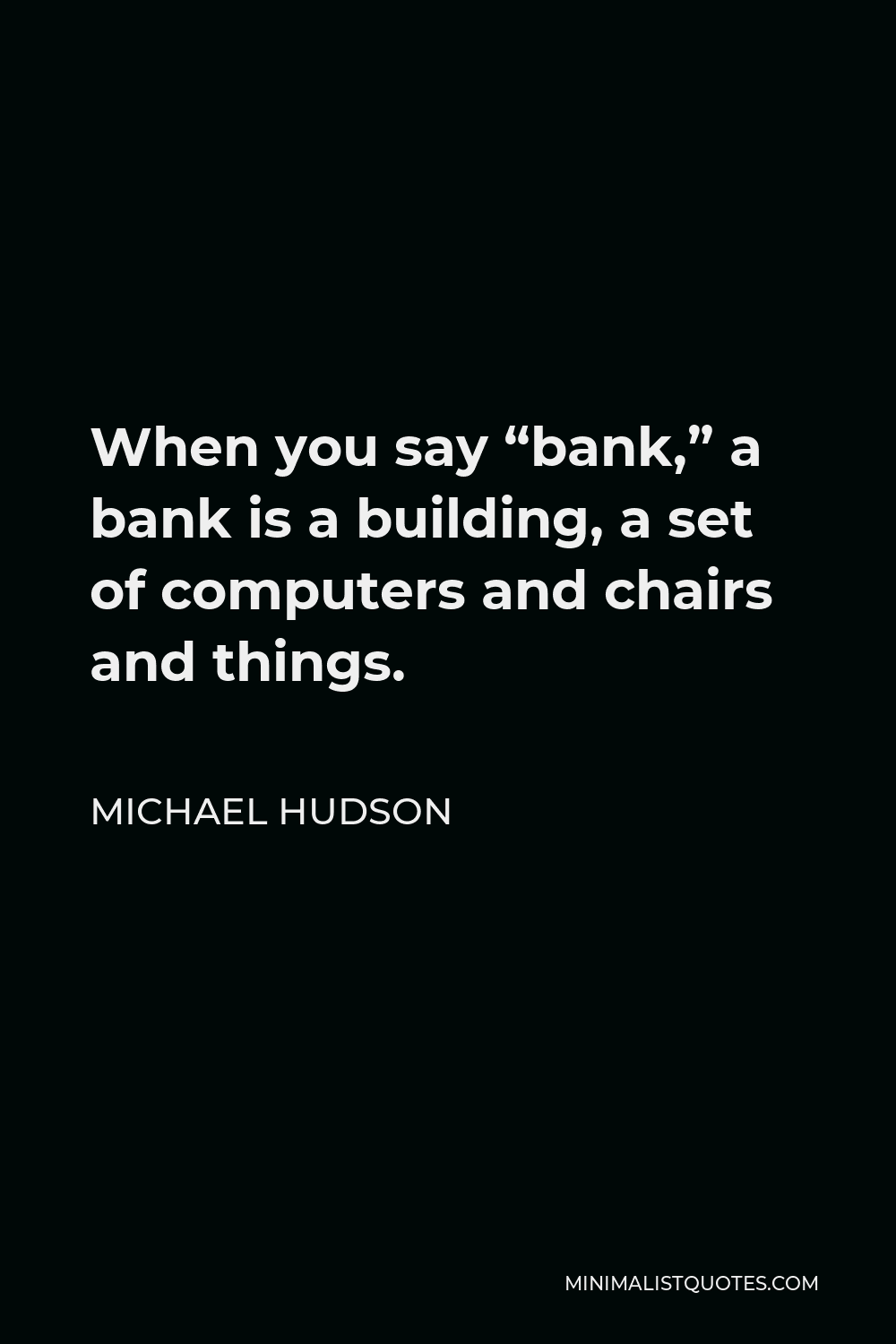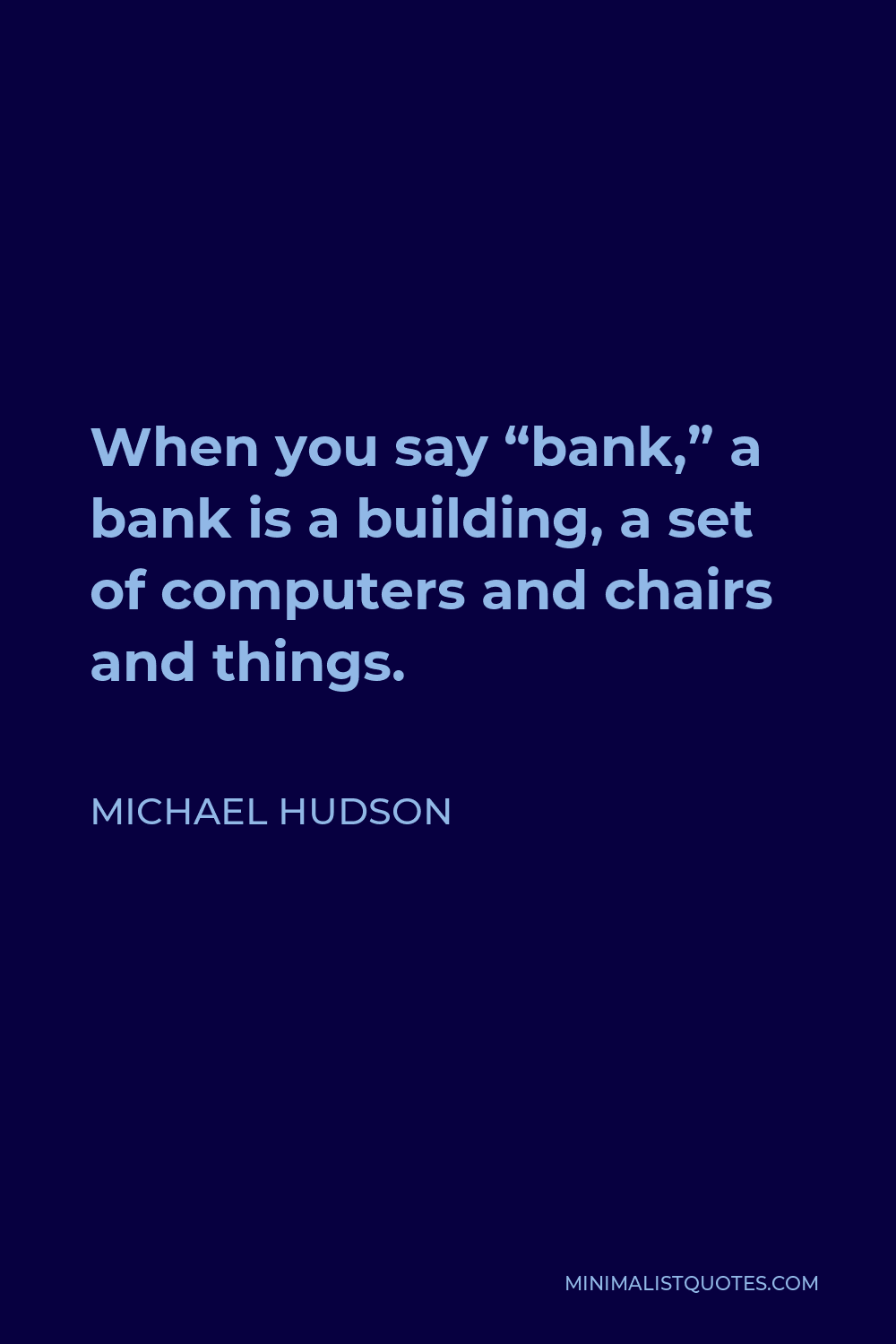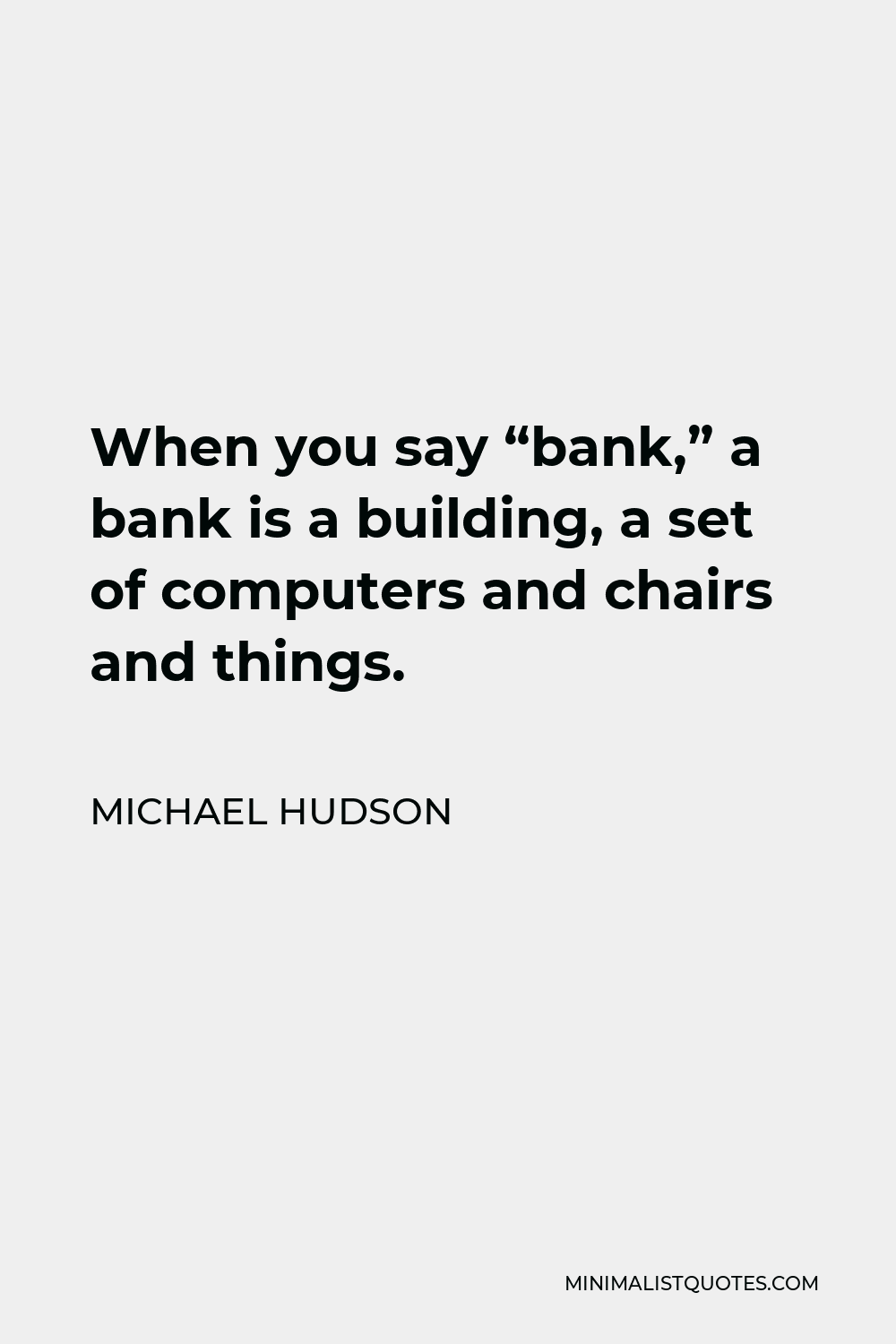Every government, from the Obama administration right through to Angela Merkel, the Eurozone and the IMF, promise to save the banks, not the economy.
MICHAEL HUDSONWhen you say “bank,” a bank is a building, a set of computers and chairs and things.
More Michael Hudson Quotes
-






-





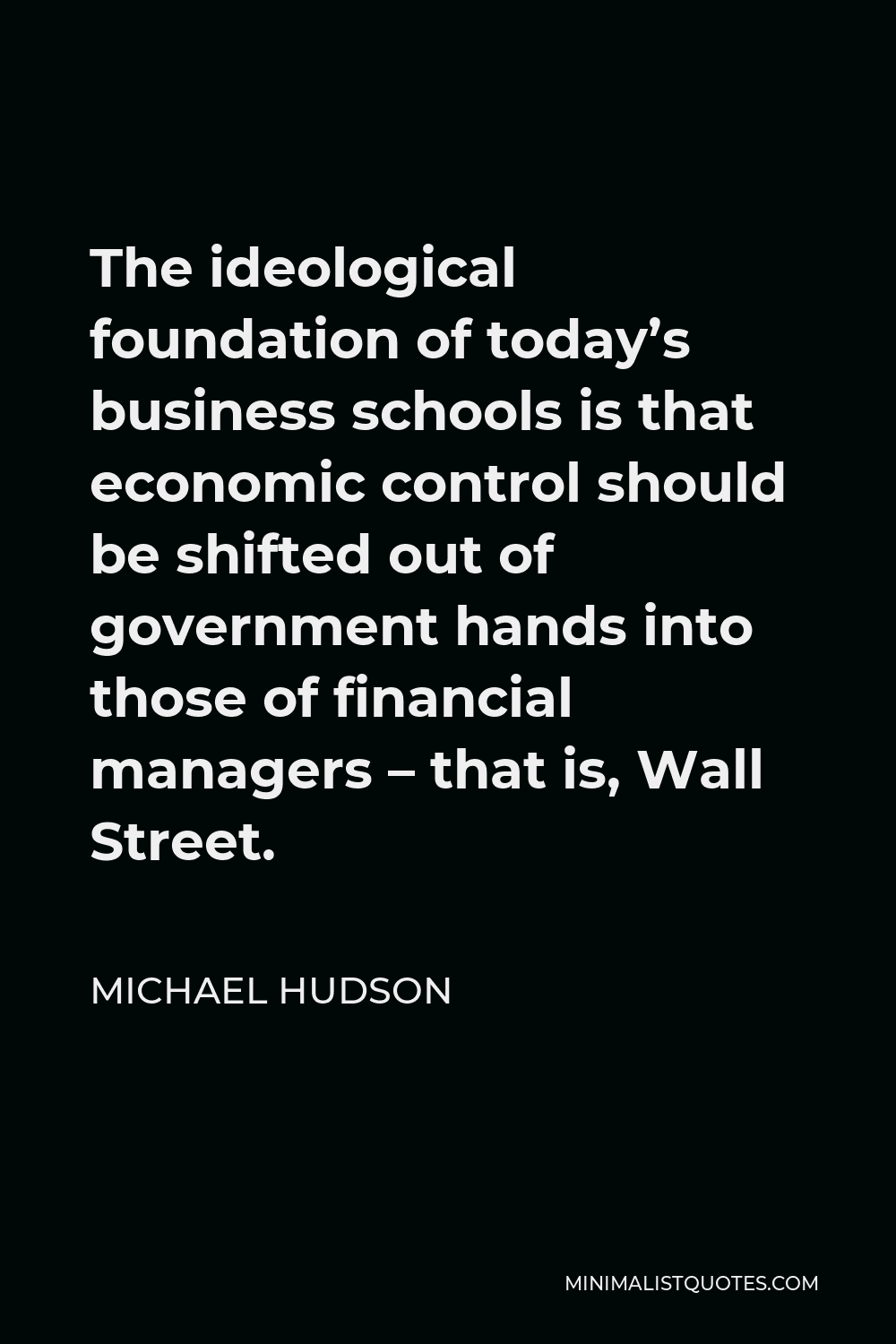
The ideological foundation of today’s business schools is that economic control should be shifted out of government hands into those of financial managers – that is, Wall Street.
MICHAEL HUDSON -






When people are running up more and more debt for housing, they call that “real wealth.” It exposes what’s wrong in the mainstream economics and why most of the economics that justifies austerity programs and economic shrinkage is in the textbooks is not scientific.
MICHAEL HUDSON -





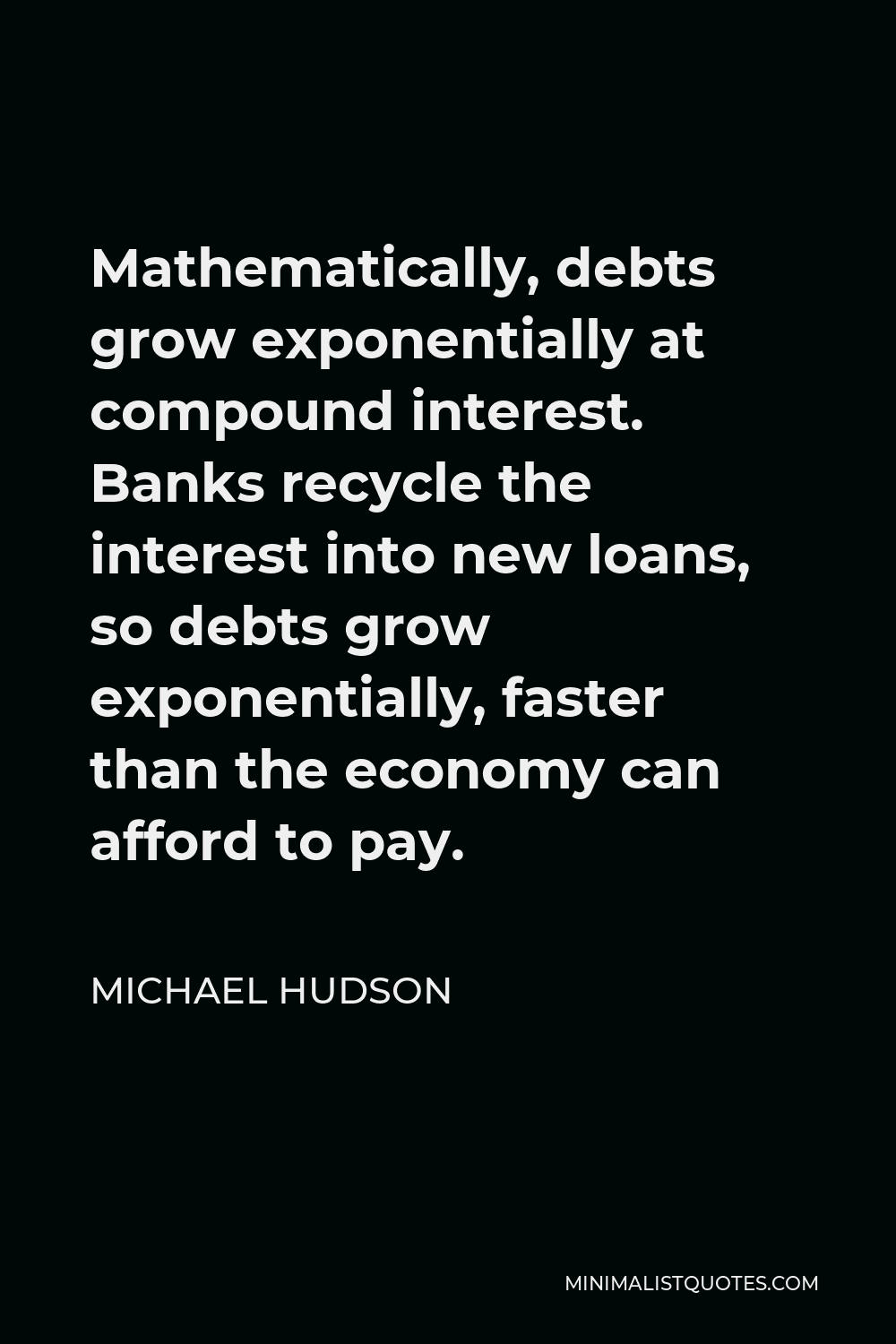
Mathematically, debts grow exponentially at compound interest. Banks recycle the interest into new loans, so debts grow exponentially, faster than the economy can afford to pay.
MICHAEL HUDSON -





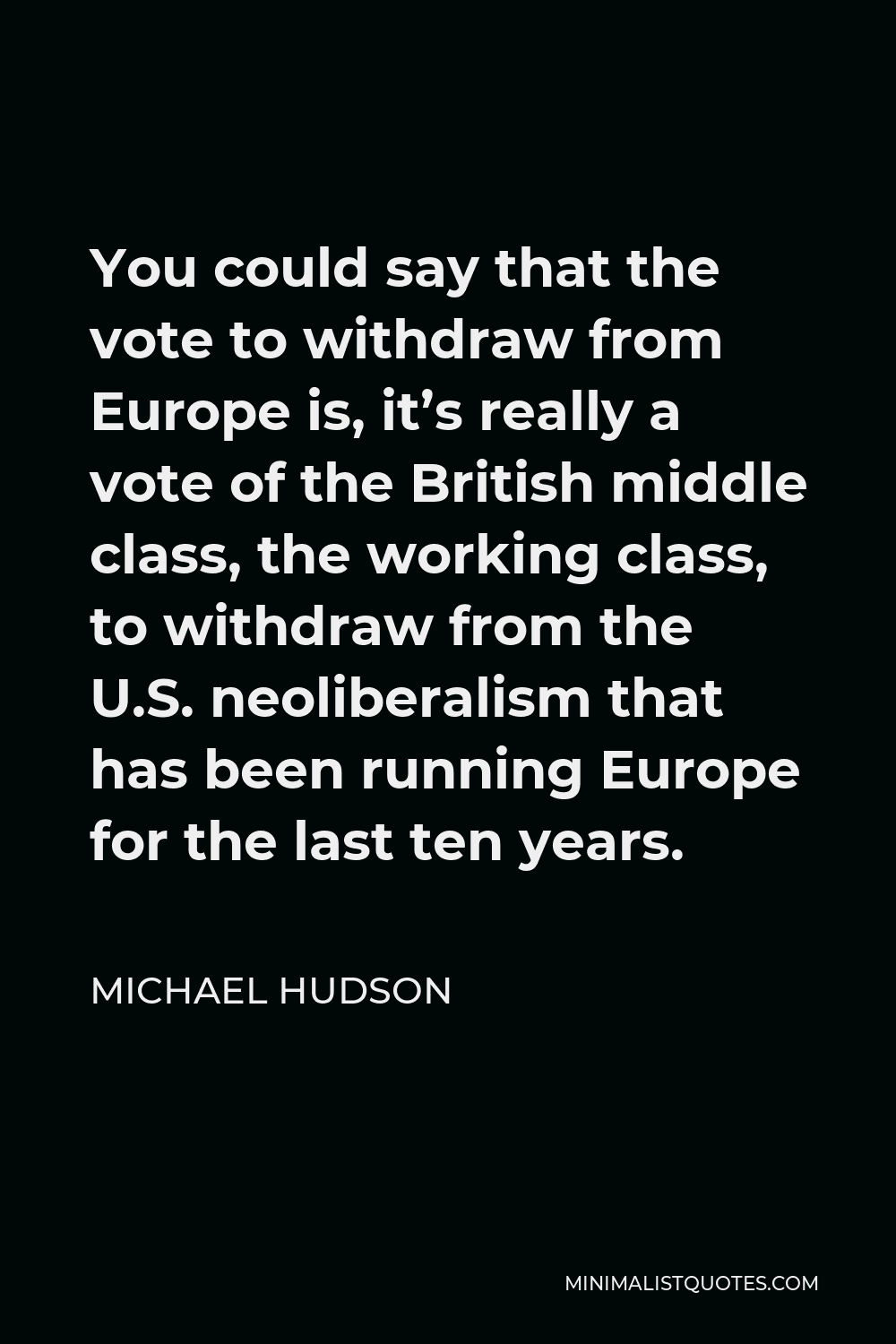
You could say that the vote to withdraw from Europe is, it’s really a vote of the British middle class, the working class, to withdraw from the U.S. neoliberalism that has been running Europe for the last ten years.
MICHAEL HUDSON -





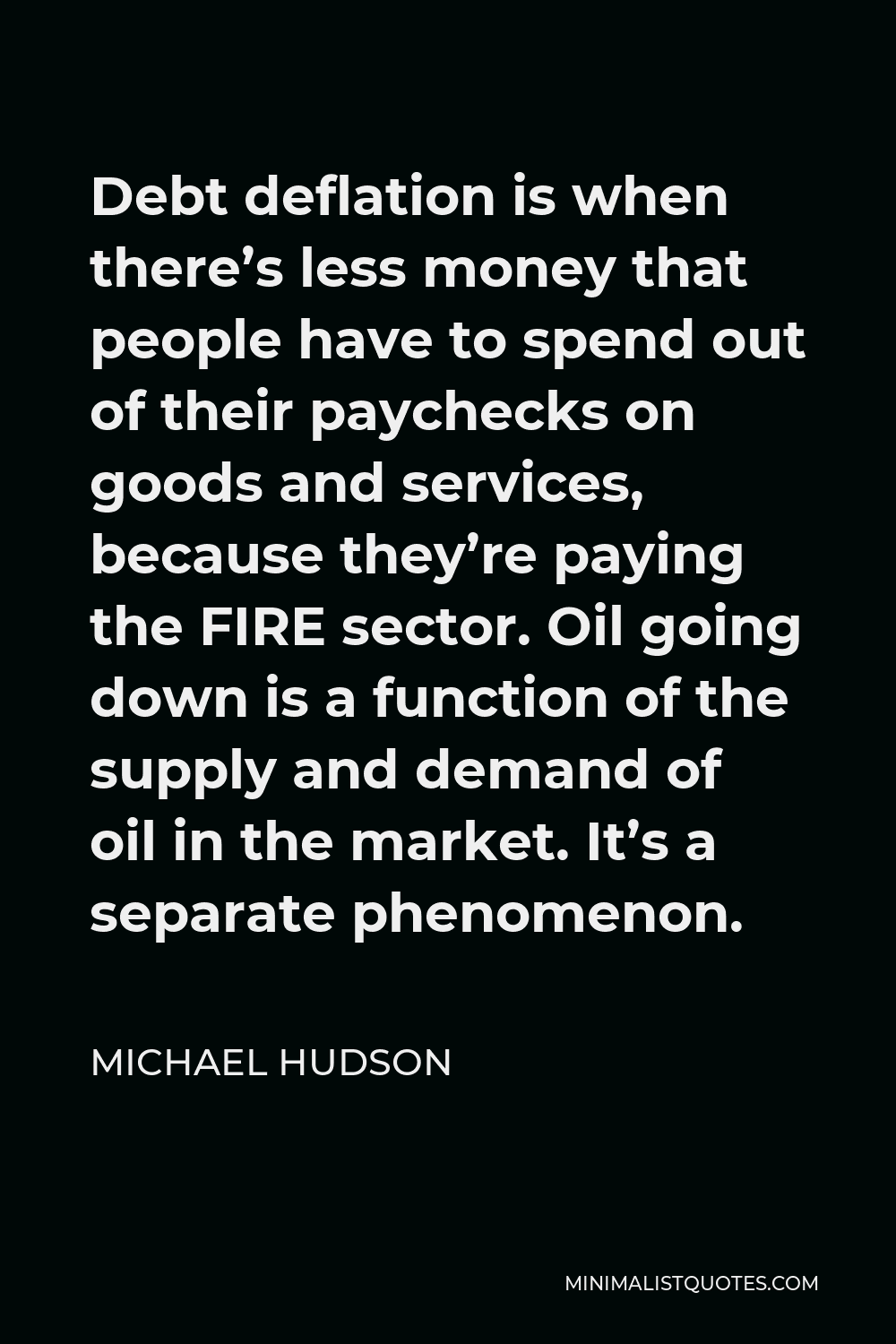
Debt deflation is when there’s less money that people have to spend out of their paychecks on goods and services, because they’re paying the FIRE sector. Oil going down is a function of the supply and demand of oil in the market. It’s a separate phenomenon.
MICHAEL HUDSON -







What’s the best gamble in the world, right now? Its betting that Deutsche Bank stock is going to go down. Short sellers borrowed money from their banks to place bets that Deutsche Bank stock is going to go down.
MICHAEL HUDSON -







It’s amazing that Europe says, “What are we going to do with these refugees?” It’s as if it doesn’t realize that being part of NATO and bombing these countries forces them to choose to live by fleeing, or to stay and get bombed.
MICHAEL HUDSON -





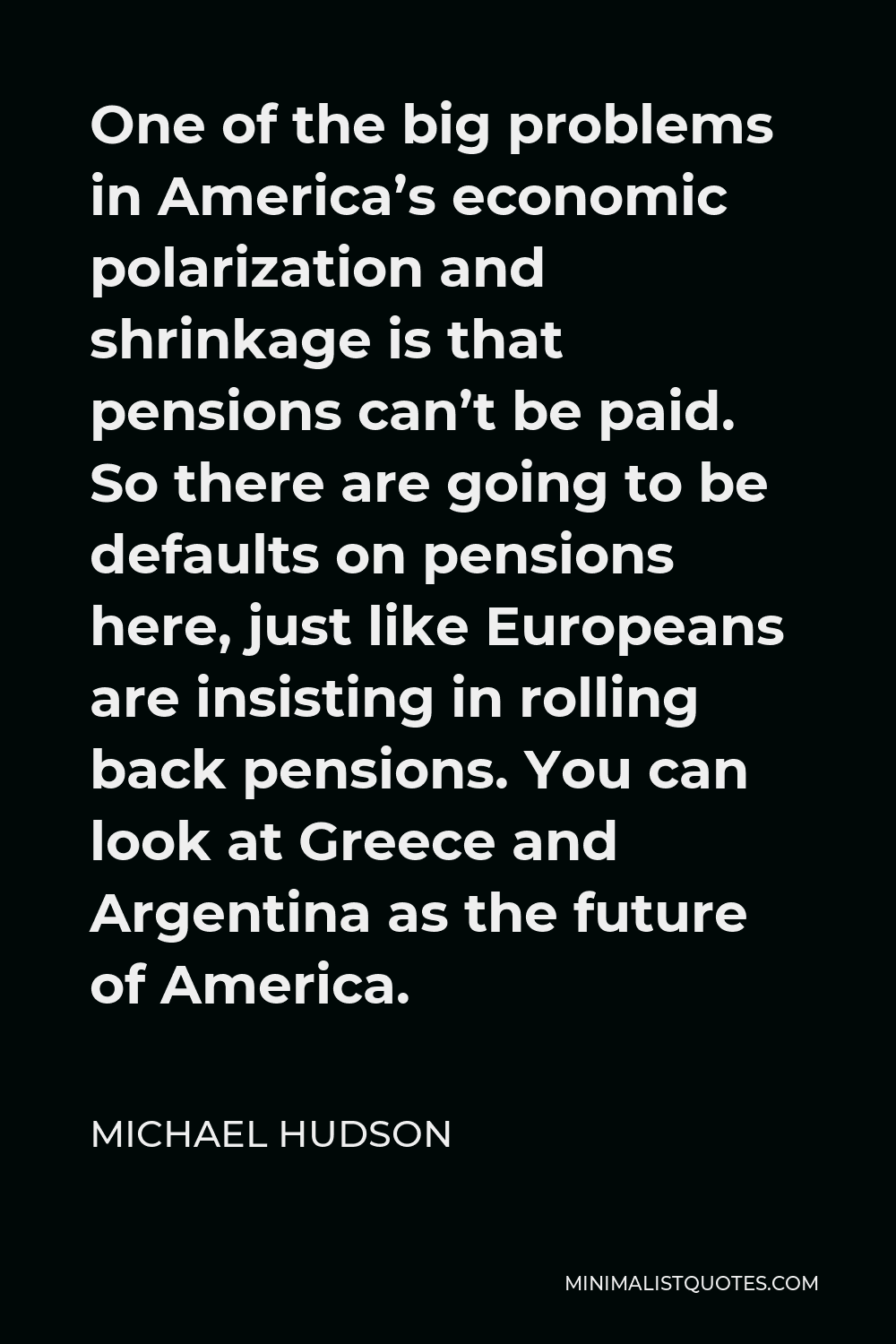
One of the big problems in America’s economic polarization and shrinkage is that pensions can’t be paid. So there are going to be defaults on pensions here, just like Europeans are insisting in rolling back pensions. You can look at Greece and Argentina as the future of America.
MICHAEL HUDSON -





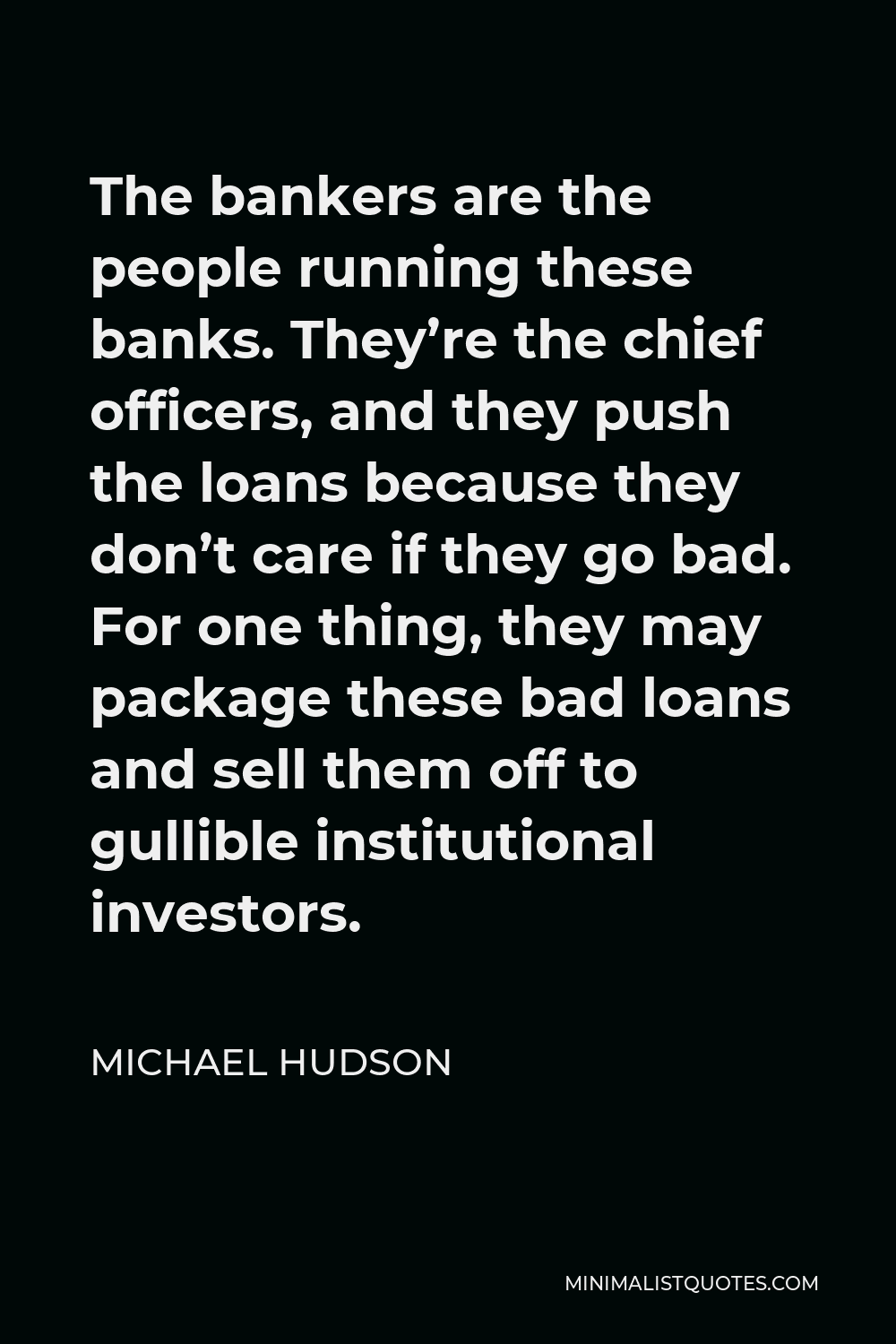
The bankers are the people running these banks. They’re the chief officers, and they push the loans because they don’t care if they go bad. For one thing, they may package these bad loans and sell them off to gullible institutional investors.
MICHAEL HUDSON -





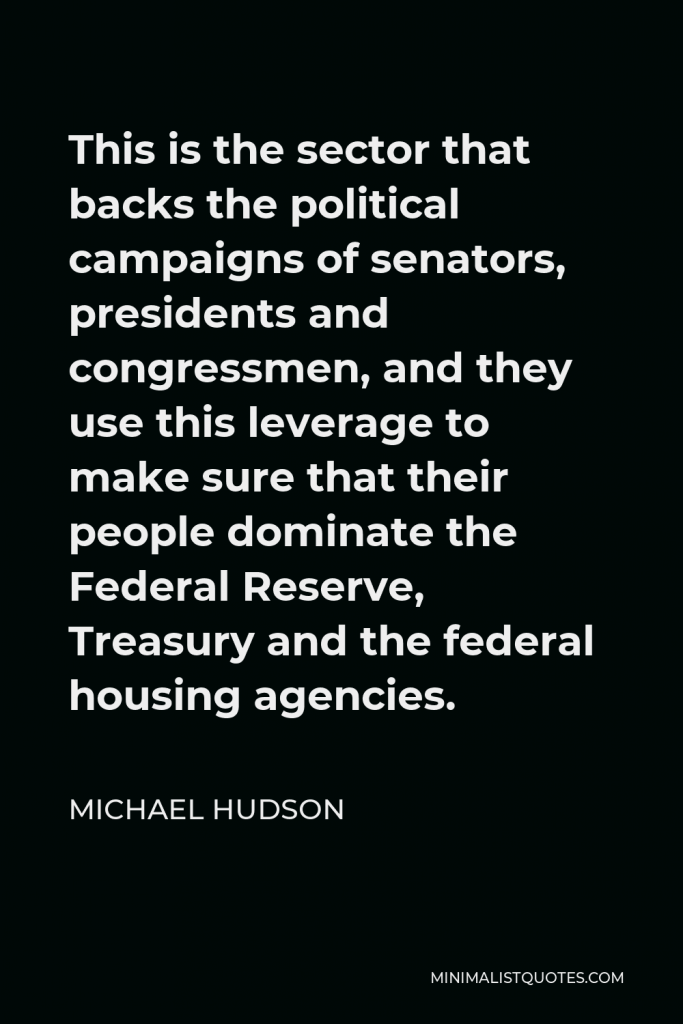

This is the sector that backs the political campaigns of senators, presidents and congressmen, and they use this leverage to make sure that their people dominate the Federal Reserve, Treasury and the federal housing agencies.
MICHAEL HUDSON -






When we say “people worry” about inflation, it’s mainly bondholders that worry. The labor force benefitted from the inflation of the ’50s, ’60s and ’70s.
MICHAEL HUDSON -






Now, suppose that a homeowner puts down only 3% of their own money or 3.5% for the FHA. That means if prices go down by only 3%, the house will be in negative equity and it would pay the homeowner just to walk away and say, “The house now is worth less than the mortgage I owe.
MICHAEL HUDSON -





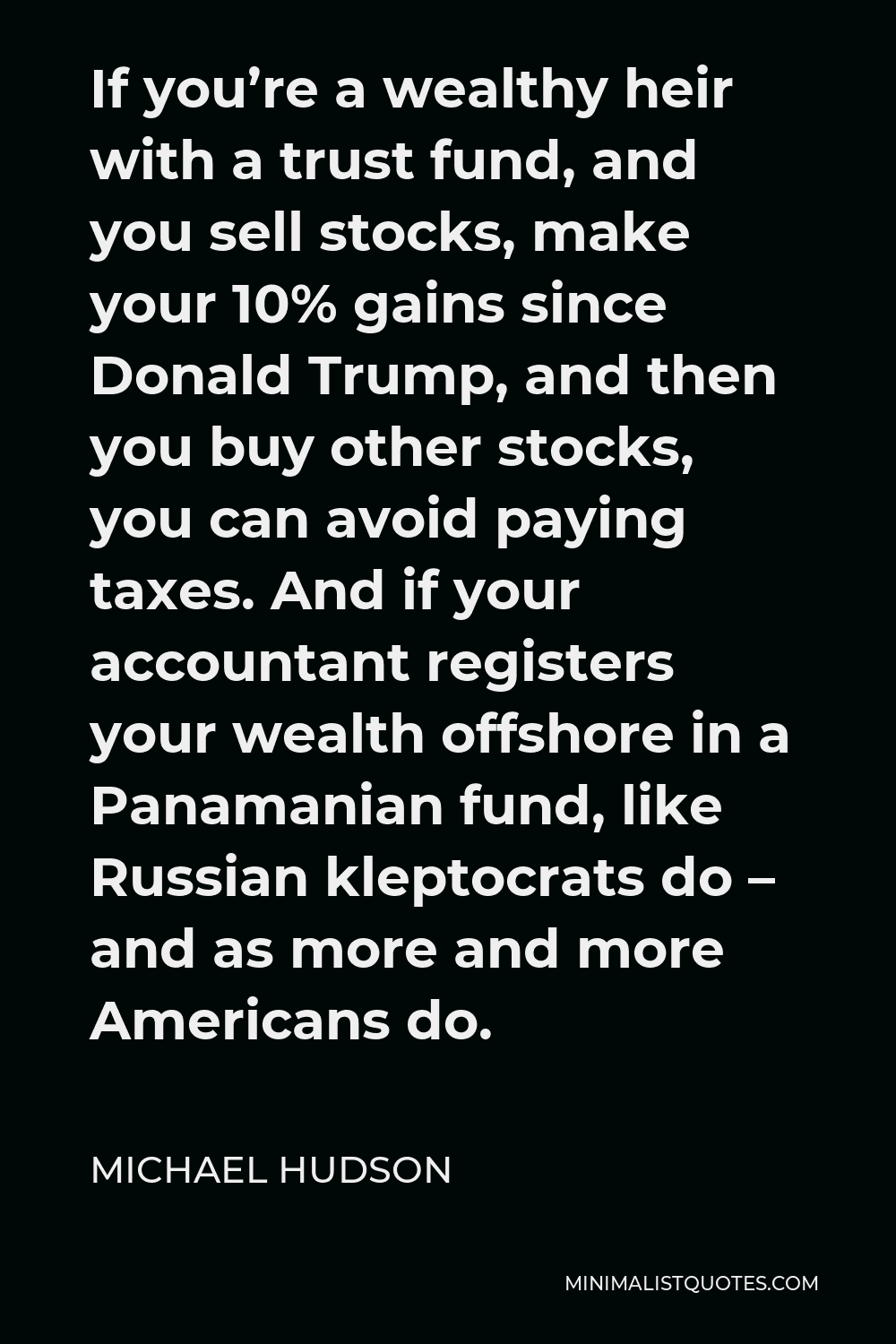
If you’re a wealthy heir with a trust fund, and you sell stocks, make your 10% gains since Donald Trump, and then you buy other stocks, you can avoid paying taxes. And if your accountant registers your wealth offshore in a Panamanian fund, like Russian kleptocrats do – and as more and more Americans do.
MICHAEL HUDSON -







The parasite can’t simply come in and take something. First of all, it needs to numb the host. It has an enzyme so that the host doesn’t realize the parasite’s there.
MICHAEL HUDSON -





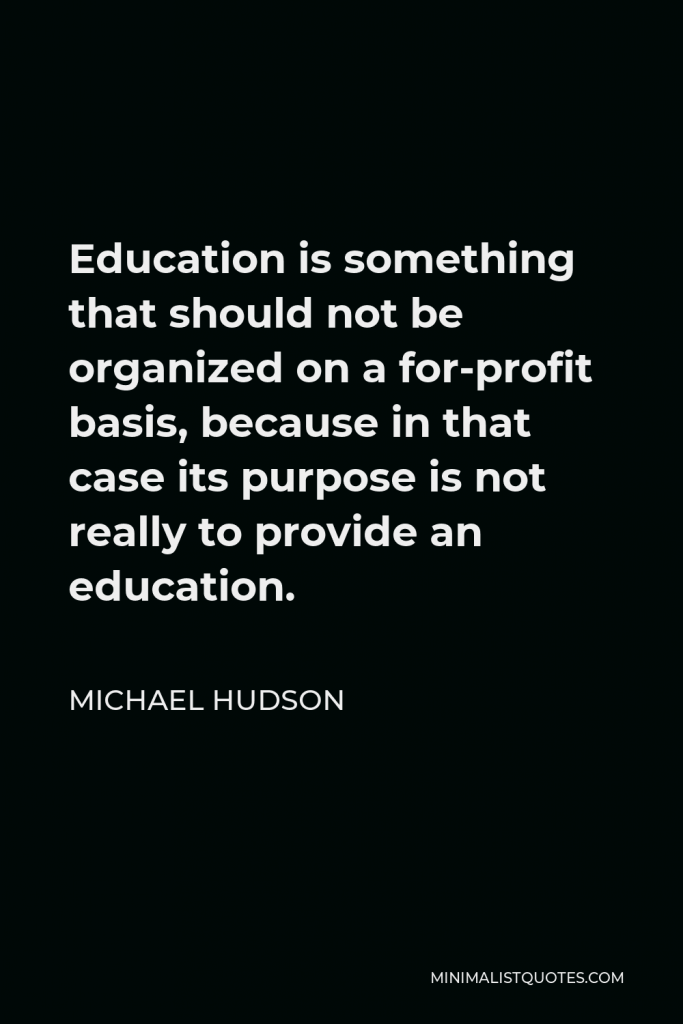

Education is something that should not be organized on a for-profit basis, because in that case its purpose is not really to provide an education.
MICHAEL HUDSON
